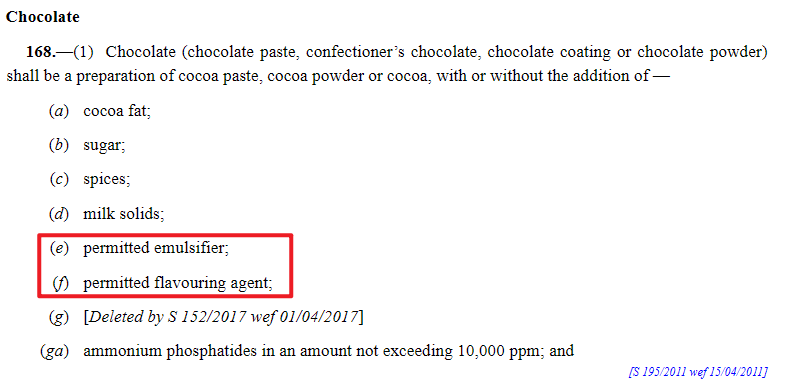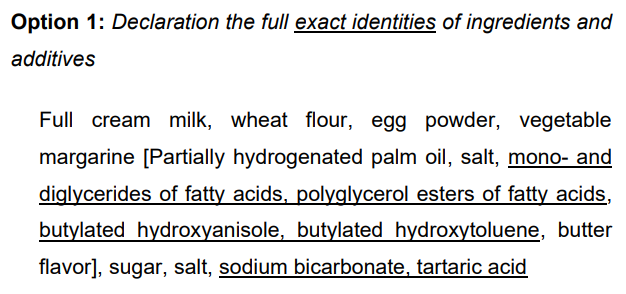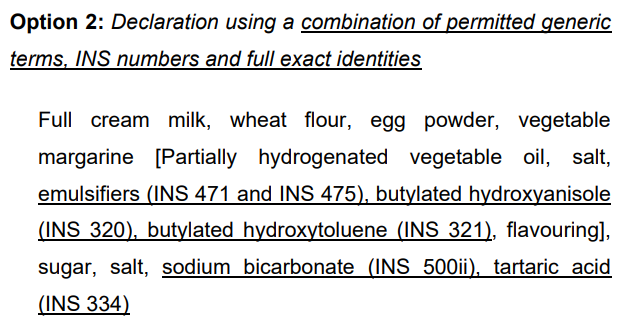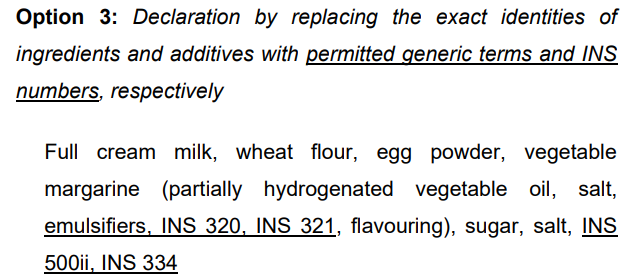
With the acceleration of the pace of globalization, more and more domestic enterprises actively explore overseas markets, Singapore, as an important market in Southeast Asia, naturally becomes the focus of many enterprises. Moreover, as an integral part of food processing, the management of food additives plays a key role in Singapore's food safety system. In this article, Foodmate introduces the management requirements of food additives in Singapore, including the supervision of food additives, the compliance requirements of food additives and their labeling requirements in the food ingredient list, so that food enterprises exporting to Singapore can understand and abide by the relevant regulations and ensure that the products meet the import requirements of Singapore.
1. Supervision of food additives in Singapore
At present, the authority in charge of food additives is the Singpore Food Agency (SFA). SFA defines food additives as: "Food additives are chemicals deliberately added to food, usually in a very small amount to achieve specific technical functions (such as preservatives, colorants, emulsifiers, etc.). Food additives can be natural or synthetic sources. Foreign matters caused by pollution or improper food handling are not included."
In Singapore, food additives include anticoagulants, defoamants, antioxidants, sweeteners, preservatives, colorants, emulsifiers and stabilizers, flavoring agents, flavor enhancers, humectants, nutritional supplements, chelating agents, gaseous packaging agents and general food additives (processing AIDS, etc.).
The Singapore Food Regulations specify the requirements for the use of food additives and the list of food additives approved for use. The SFA website provides a list of food additives and a searchable database for quick reference on the use of food additives in Singapore, but the query results are for reference only, and the text of the Food Regulations shall prevail.
2. Compliance requirements of food additives in Singapore
Food additives specified in Articles 15-28 of Part III, Third Schedule to Eighth Schedule and Thirteenth schedule of the Food Regulations can be used in food. Among them, Seventh schedule lists the source of nutritional supplements and compounds that can be used in food. Different from China's "National Food Safety Standard for Uses of Nutritional Fortifiers" (GB 14880-2012), nutritional fortifiers in Singapore can be used in a moderate amount in all kinds of foods except the specified special foods only if the use of nutritional fortifiers is not explicitly prohibited in the product definition.
In order to better understand the compliance requirements of food additives in Singapore, let's take whether L- theanine can be used in chocolate as an example to share a method to judge whether food additives are compliant.
(a) Determine the food category
According to the product standards under Part IV of the Food Regulations, chocolate is included under the classification of tea, coffee and cocoa, and is allowed to add emulsifiers and flavor enhancers approved for use.

(b) Confirm whether L-theanine is an approved food additive
According to the Food Regulations, L-theanine is an approved flavor enhancer. Combined with the product standards of chocolate and the requirements for the use of food additives, L-theanine can be used in chocolate, and its content in chocolate is not more than 1000 ppm.

3.Labeling requirements of food additives in food ingredients list in Singapore
According to the Singapore Food Regulations and "A Guide to Food Labelling and Advertisements", except for certain exempted foods outside the category, the labels of pre-packaged foods must include a detailed list of ingredients and food additives used.
"A Guide to Food Labelling and Advertisements" further clarifies that for food additives, in addition to the exact name of the food additive, INS code or E code can also be marked, while the functional category of the food additive is not mandatory. Three examples are given in "A Guide to Food Labelling and Advertisements":



In addition, specific food additives should also meet special labeling requirements. For example, products containing the synthetic pigment lemon yellow must select one of the following labels: lemon yellow, Colorants (102), Colorant (FD Yellow #5) or other equivalent term.
Summary
The above is an introduction to the management requirements of food additives in Singapore. Food export needs to comply with the laws and regulations of the target country, so as to ensure the smooth export of products. Foodmate has rich experience in compliance review of food exported to Southeast Asia, and can provide you with professional food export compliance service. If need any help, please contact us via global_info@foodmate.net.